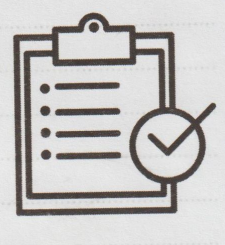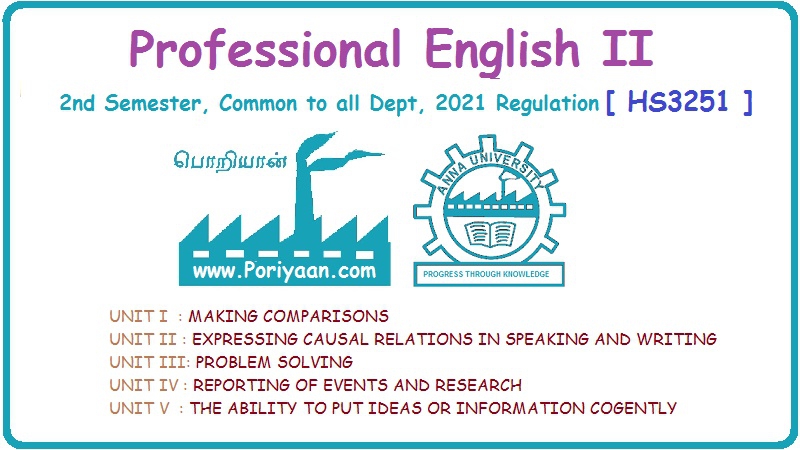Professional English: Writing: UNIT 3
Checklists
Writing | Professional English
Check list is prepared to check whether all works have been carried out before attending an interview or before going for any important events. It is also prepared as a plan to succeed in event management.
CHAPTER - 5
CHECKLISTS
Check
list is prepared to check whether all works have been carried out before
attending an interview or before going for any important events. It is also
prepared as a plan to succeed in event management. It is an effective
organizational tool. Checklist is essential even for day to day activities. It
is useful for fulfilling academic, official, personal, social and family
responsibilities. It ensures perfection. It is written in the form of verb
questions in Technical and Professional English. For rough work, checklists can
be written in hints.

Advantages of using checklist:
•
It gets our life organized.
•
It gets the completion of tasks faster.
•
It gives the user of the checklist peace of mind.
•
It facilitates the completion of tasks one by one.
•
It reduces stress.
•
It enhances planning skills.
•
It improves vision and foresight of what is needed.
•
It saves time.
There are two main categories of checklists:
•
Daily
checklist: A daily checklist is a list of all the tasks to be
completed in a single day. If the task is not finished, there is no worry and
it can be added in the next checklist to be fulfilled.
•
Situational
checklist: A situational checklist is a checklist that
features tasks specific to a certain event or area of your life. So, for
example, a to-do list for a wedding or a birthday party or before an exam.
These will typically take longer to complete than daily to-do list, but are
helpful for organizing tasks related to a big event.
Daily and situational checklists are both extremely effective.
Tips for writing a good checklist.
1.
Structure it logically.
2.
Check important works are added.
3.
Prioritise your questions.
4.
Check even less important works are added to be done if time permits.
5.
Make questions simple and unbiased.
6.
Clarify the objective or goal.
7.
Provide/seek help and guidance.
8.
Emphasise the right questions.
Examples
I.
Checklist to be followed before conducting a function:
1.
Have I invited the chief guest?
Yes
/ No
2.
Is the college band ready to Invite the chief guest?
Yes
/ No
3.
Has the seating arrangement been made?
Yes
/ No
4.
Is the sound system found in good condition?
Yes
/ No
5.
Are there enough mikes?
Yes
/ No
6.
Is the stage arranged/decorated properly?
Yes
/ No
7.
Is the arrangement over for refreshments?
Yes
/ No
8.
Are the In charges allotted different duties?
Yes
/ No
II.
Checklist to be followed before attending an interview:
1.
Have I taken the interview call letter?
Yes
/ No
2.
Have I taken the original certificates?
Yes
/ No
3.
Have I taken the photocopies of certificates?
Yes
/ No
4. Have I taken the recent passport size photos?
Yes
/ No
5.
Have I taken enough money along with Debit card?
Yes
/ No
6.
Will I be reaching the place on time?
Yes
/ No
6.
Am I dressed formally?
Yes
/ No
7.
Do I have some contact numbers?
Yes
/ No
8.
Have I prepared well?
Yes
/ No
9.
Have I prepared for a good self-intro?
Yes
/ No
10.
Have I prepared answers for FAQ?
Yes
/ No
11.
Have I prayed well?
Yes
/ No
III.
Checklist to be followed before going on a weeklong tour:
1.
Have I switched off all electrical appliances?
Yes
/ No
2.
Have I taken the tickets, money, ATM cards or debit or credit cards?
Yes
/ No
3.
Have I taken necessary medicines?
Yes
/ No
4.
Have I informed my neighbours?
Yes
/ No
5.
Have I kept the costly ornaments in locker?
Yes
/ No
6.
Have I taken sufficient dresses?
Yes
/ No
7.
Have I closed the windows and locked all doors?
Yes
/ No
8.
Have I handed over all potted plants and pets to neighbours?
Yes
/ No
9.
Have I taken the first aid box?
Yes
/ No
10.
Have I taken snacks needed?
Yes
/ No
11.
Have I taken my phone and charger?
Yes
/ No
12.
Do I have the vaccination certificate soft copy in my bottoll mobile?
Yes
/ No
IV.
Checklist to be followed for safety inspection purpose:
1.
Is the office clean?
Yes
/ No
2.
Are aisles free of boxes, wastebaskets, chairs, and other obstacles that impede
traffic?
Yes
/ No
3.
Are electrical appliances kept safe for people?
Yes
/ No
4.
Are restrooms kept clean and floors dry?
Yes
/ No
5.
Do the cords present a tripping hazard?
Yes
/ No
6.
Are flimsy extension cords in use?
Yes
/ No
7.
Are cover plates for electrical switches or receptacles cracked or broken?
Yes
/ No
8.
Are all appliances connected with three-pronged plugs?
Yes
/ No
9.
Are transparent glass doors marked so they can be seen?
Yes
/ No
10.
Do employees put tops on cups of coffee or tosto at lever 100 a ther liquids
while carrying them through the office?
11.
Do employees run in the office?
Yes
/ No
12.
Are stairwells well lit?
Yes
/ No
13.
Are stairway handrails, treads and/or risers in good condition?
Yes
/ No
14.
Are files, lockers, cabinets, and bookcases bolted securely?
Yes
/ No
15.
Are adequate first-aid supplies available?
Yes
/ No
V.
Checklist to be followed for averting fire accidents in public functions conducted
in temporary structures.
1.
Have I kept fire extinguishers ready?
Yes
/ No
2.
Have I trained the people on how to use fire extinguishers?
Yes
/ No
3.
Have I instructed every one not to burn anything inside or not to smoke?
Yes
/ No
4.
Have I called the professional and experience persons/organisations to
construct temporary structures?
Yes
/ No
5.
Have I checked whether the structure is fixed strong?
Yes
/ No
6.
Have I inspected whether any highly inflammable items are found inside?
Yes
/ No
7.
Have I checked whether the electrical wires do not diary odt aset I svsH 0 touch
the structure?
Yes
/ No
8.
Have I nominated some persons exclusively for rent yǝrom institue checking the
safety arrangements?
Yes
/ No
9.
Have I informed the organizers to be careful throughout the function?
Yes
/ No
10.
Have I informed the police for security reasons?
Yes
/ No
VI.
Checklist to be followed before travelling abroad:
1.
Have I taken the visa for travelling?
Yes
/ No
2.
Have I taken the needed certificates and testimonials?
Yes
/ No
3.
Have I confirmed my date of travel with the agent?
Yes
/ No
4.
Have I changed the currency notes suitable to spend?
Yes
/ No
5.
Do I have taken the contact numbers of Indian Embassy?
Yes
/ No
6.
Have I taken all the data that has to be loaded in the laptop?
Yes
/ No
7.
Have I kept all the data safe in mail or already sent to office by mail?
Yes
/ No
8.
Have I filled the emergency contact details in my passport in case of need?
Yes
/ No
9.
Have I checked my health status with the doctor before I travel?
Yes
/ No
10.
Have I taken a travel guide along with me for further details?
Yes
/ No
11.
Have I taken any of my relative's contact number and address for safety?
Yes
/ No
12.
Have I confirmed about the accommodation facility?
Yes
/ No
VII.
Checklist to be followed before going to Mumbai for an industrial visit as a
team leader.
1.
Have I taken identity card?
Yes
/ No
2.
Am I carrying permission letter from my branch?
Yes
/ No
3.
Do I have the tickets safe both onward and return ticket?
Yes
/ No
4.
Are all the documents taken in hard copies and soft copies?
Yes
/ No
5.
Have I taken the confirmation letter from Mumbai branch?
Yes
/ No No
6.
Have I taken the visiting card of the Mumbai official?
Yes
/ No Yes
7.
Do I have enough money and the ATM card with sufficient money in account?
Yes
/ No
8.
Have I checked the validity date of my debit card?
Yes
/ No
9.
Have I taken my cellphone & charger?
Yes
/ No
10.
Have I given necessary instructions to my team members?
Yes
/ No
Professional English: Writing: UNIT 3 : Tag: : Writing | Professional English - Checklists
Related Topics
Related Subjects
Professional English II
HS3251 2nd Semester 2021 Regulation | 2nd Semester Common to all Dept 2021 Regulation
